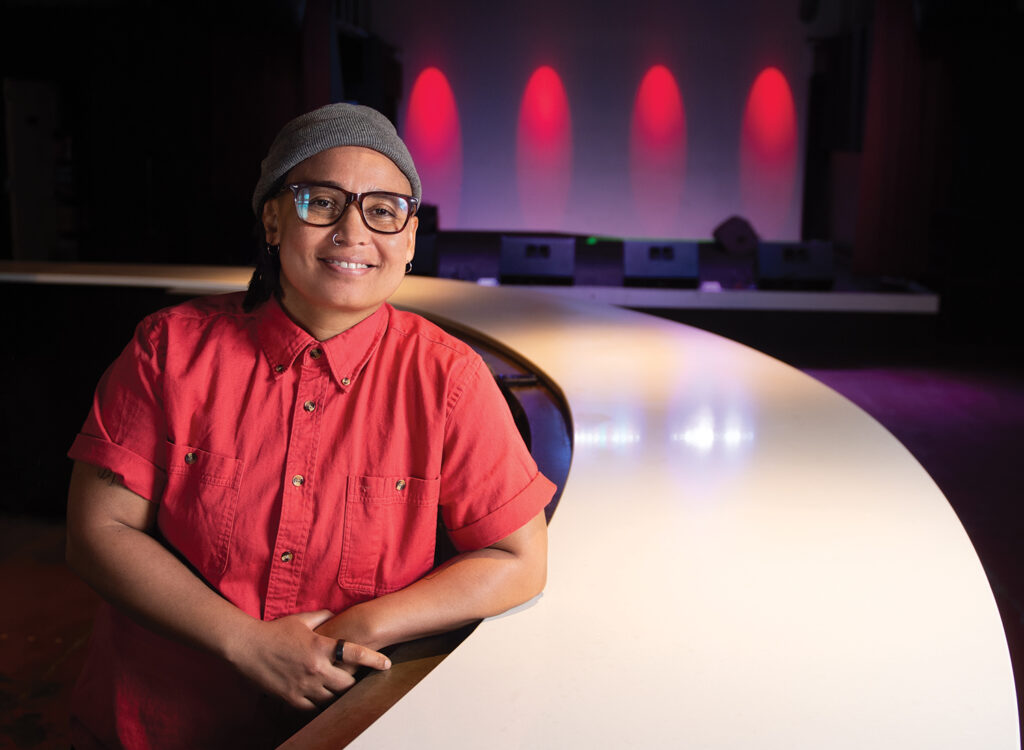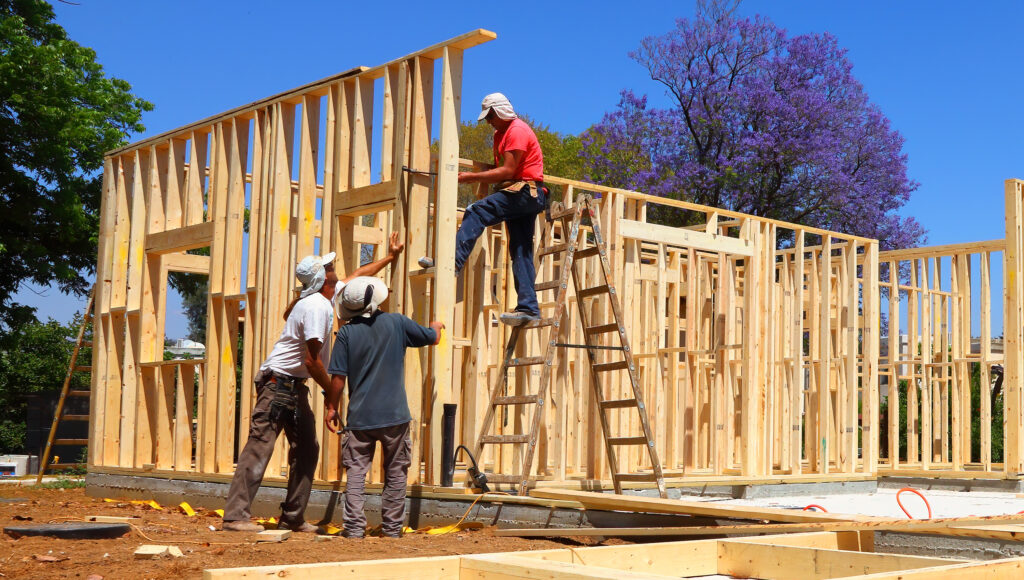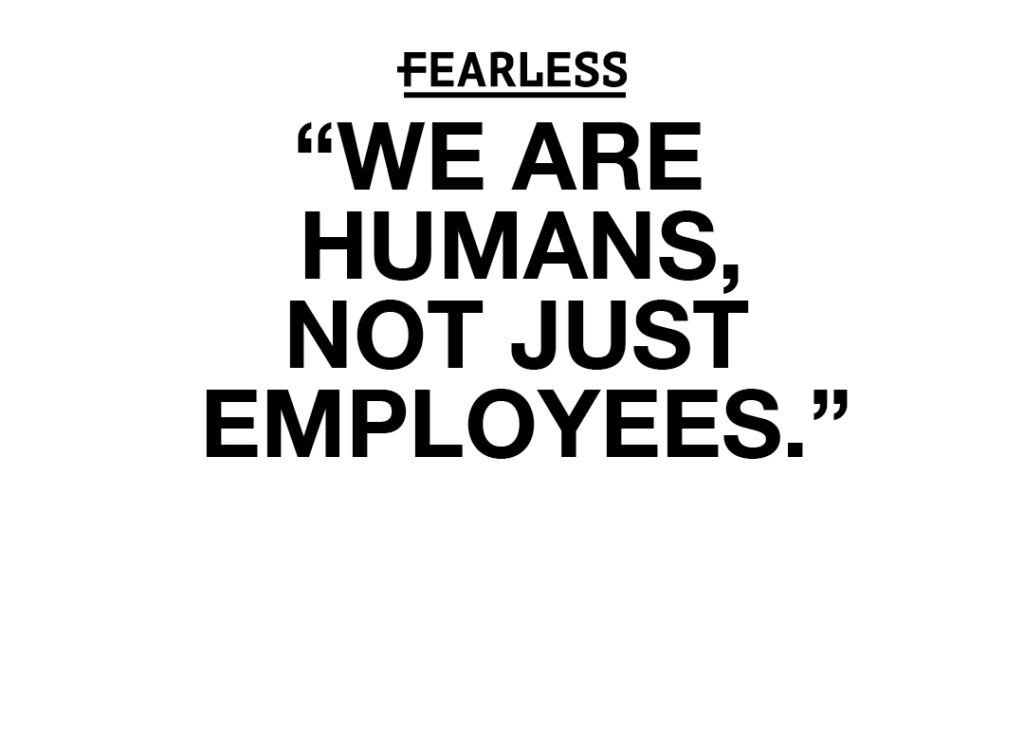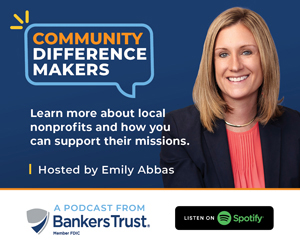The catalyst of 80/35
Advocates share bright spots, challenges in local music scene after DMMC dissolution

Lisa Rossi Apr 18, 2025 | 6:00 am
7 min read time
1,599 wordsArts and Culture, Business Record InsiderWhen Tobi Parks was researching whether to relocate from New York City to Des Moines, she looked into the arts and culture scene here.
She discovered the Des Moines Music Coalition (DMMC) and after meeting with some of the people involved, the nonprofit brought Parks in to speak at an event.
“It really was a catalyst to showing me what the potential of the city was, and how really strong and enthusiastic the community was, and it was really very community-driven, the art and culture scene here,” Parks said. “And I really kind of fell in love with it.”
Parks made the move to Des Moines in 2015, and she would later open the 250-seat music venue xBk Live in the Drake neighborhood. At the time, the 80/35 music festival and the DMMC were in full swing. In the coming years, music advocates would continue to push for a robust music scene as an important part of positioning Des Moines as a cultural hub. The DMMC launched 80/35 in 2008 as a way to bring together artists traveling along the two biggest arteries for touring bands: Interstate 80 and Interstate 35.
But after nearly 20 years, DMMC dissolved in October 2024, and said it would no longer operate 80/35.
Former board member and onetime board president Justin Schoen confirmed to the Business Record in March that 80/35 is canceled for this year.
“As far as I know the event will not happen in 2025, but the possibility remains that another operator could step forward and resurrect it in the future,” Schoen wrote in an email.
There are mixed views about the end of DMMC and the state of the local music scene, which historically has brought in visitors and tourism dollars, created jobs, and gained a reputation — in the case of 80/35 — of attracting young professionals to Des Moines.

Former DMMC executive director Mickey Davis said he helped write a study published in August 2022 on the local music economy, which found the Des Moines music ecosystem generated $139 million in direct economic output in 2019, which is the activity directly connected to the music ecosystem, such as musicians, agents and venues. According to the study, called “Des Moines Music Economy Assessment and Strategy,” the indirect output generated by the local music industry from tourism, jobs created and people coming to town was $13 million in 2019.
Davis said the number of people working in live music in Des Moines was just over 1,200 in 2019 with a total of 1,555 jobs created that included both the artistic and creative and the professional and supporting parts of the music ecosystem, according to the report.
Parks isn’t too bent out of shape that DMMC no longer exists. She pointed to bright spots in the music scene that it helped create.
“The seeds that were sown through the music coalition and through 80/35 are really starting to come to fruition,” she said, citing other venues in the city like Wooly’s and Val Air Ballroom, as well as the work done by Phil Young, head audio engineer at Trilix Studio, a full-service production facility. She also highlighted the work of Anne and Dave Ducharme-Jones, who host a program called Monday Night Live at xBk, as well as Bryan Vanderpool, a producer and engineer at Des Moines-based Golden Bear Records.
“It served its purpose, and I think it really lived up to its mission,” Parks said of DMMC. “And now it’s up to the rest of us in this community to kind of carry that mantle, instead of it being the nonprofit organization kind of chugging along to do the heavy lifting. It really set the table for us to be able to pick it up and carry on.”
A new generation for Des Moines’ music scene
Among the initiatives Parks is overseeing is xBk’s Creative Entrepreneurship Program, which is similar to some of the programming the DMMC did, she said. The program is a monthly class for creatives to learn about business planning. At the end of the program, they have the opportunity to apply for a microloan.
“We’re in discussions and also working on finding a benefactor to support a matching grant,” she said. “So there would be a public-private partnership in that respect, to help launch creative small businesses.”
Davis currently wears a lot of hats in the music industry. He’s operations manager at Vibrant Music Hall in Waukee and co-founder of Tajali Presents, a company that books events around town, such as PrideFest. He’s also host of “Studio 3 Live” on Iowa PBS.
Davis said a lot of the growth and excitement that characterized the music scene in Des Moines from 2012 up to the onset of the pandemic has “[tapered] off in the past couple of years.”
He said one factor is that a number of musicians who were integral to the music scene have relocated or moved on to new chapters in their lives.
Also, young musicians and an active cultural scene are often made up of people “who are looking for a place where they are accepted,” he said.
“When you see what’s happening on the state level … it is no surprise to me that a lot of the young musicians who I know are relocating to places like Minneapolis or Chicago, where they and their friends feel more accepted.”
Davis also pointed to what is working in Des Moines’ music scene, noting that venues like xBk, Vibrant Music Hall and Hinterland, the three-day festival in St. Charles, Iowa, “continue to grow and be successful in the market.” He said he’s heard talk of a possible new venue in the Drake neighborhood and the Ingersoll Dinner Theater will have music in its future as well.
“There’s certainly more of a structure for live music in Des Moines than there ever has been, so in that regard in terms of the live music economy, I think there’s a lot of energy and momentum right now,” he said. “What that doesn’t include, really, are locally born and locally raised or locally based musicians. … I’m hopeful that between more support for local music, continued investments in small venues, we can continue to see that side of the equation proliferate.”
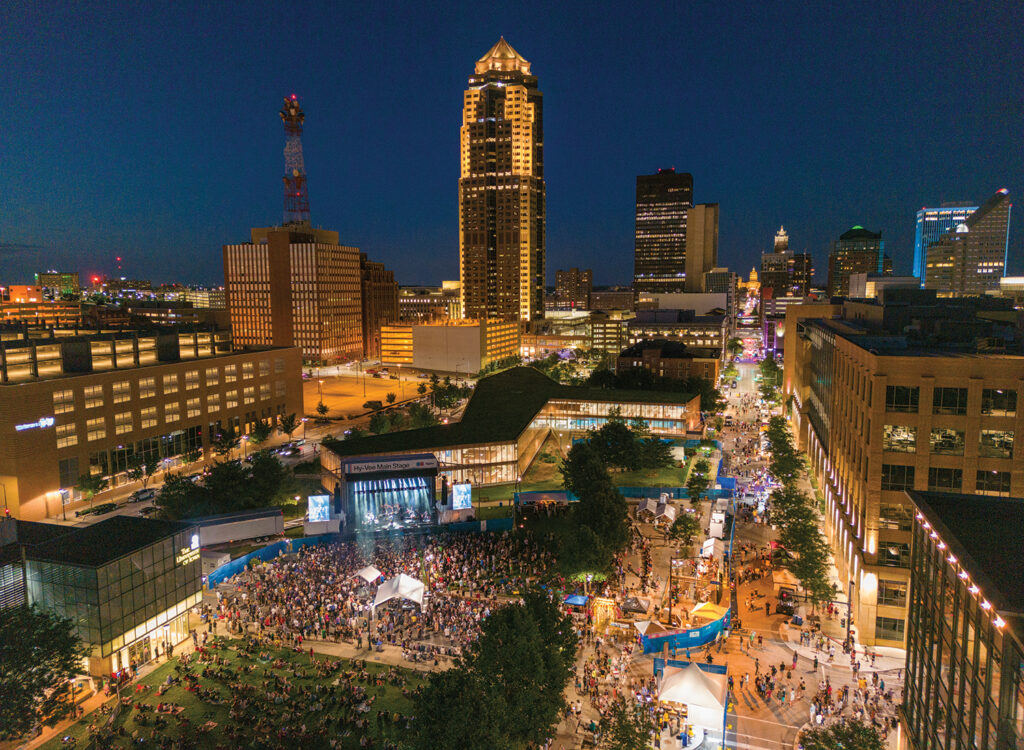
Davis ran the 80/35 festival in 2022 and 2023 and he said organizers confronted a “number of headwinds as a festival,” including a change in funding priorities for a number of local grants and corporations’ sponsorship dollars. Additionally, the overall cost of executing a festival like 80/35 doubled or tripled in some categories from pre-pandemic levels. Costs rose on electric, equipment rental, stage rentals, stage hands and other hired roles, Davis said.
Music advocates in Des Moines said the festival industry has faced hardships in other markets as well.
In 2024, NPR reported on a “wave of festivals” that have been canceling due to a variety of factors ranging from rising production costs to dropping consumer demand as a new generation of young people socialize online more.
Several festivals around the Midwest faced similar fates as 80/35, Davis said, including Rock the Garden in Minneapolis and Pitchfork Music Festival in Chicago.
“There are a number of festivals that were running into the same challenges as 80/35 at the same time,” he said.

There’s no question that “the loss of 80/35 is a loss,” said Sally Dix, president of Bravo Greater Des Moines, the region’s arts council, which funds nonprofit organizations and programs. “I think it was a tremendously successful event. It was a point of pride for our community and for our region. I don’t want to skip over that, and I think our music economy is changing, and so there’s still a lot that 80/35 catalyzed in our community.”
She said 80/35 set the stage for people to see the community “as a music economy,” noting the study the DMMC led.
She said there are more for-profit music venues than there were, including Vibrant Music Hall in Waukee and the recently renovated Val Air Ballroom. She also pointed to the increase of shows at Hoyt Sherman Place as well as the Temple for Performing Arts, the Des Moines Symphony and the Civic Music Association.
“So it’s actually spreading where the entertainment is happening,” she said. “Again, I don’t want to minimize the loss of 80/35, but I also don’t want to paint a dire picture that there’s no live music.”
“There’s a lot happening,” she added. “People just may not have as much awareness. There may not be as much visibility as there was with 80/35.”
Chip Albright, a singer-songwriter based in Des Moines, said it’s “unfortunate” the DMMC is gone.
That said, “the independent artist continues,” he said.
“There’s all sorts of opportunity for businesses and audience members to find a way to hop on and be a part of it, and it starts by deciding that you want to go to a show.”
Live music can still be found at bars and small venues all over town, Albright said. Among the local venues for live music are Lefty’s, HiFi Brew Lounge, Maggie’s Rumble Room, the Greenwood Lounge, Des Moines Performing Arts, which is doing a “Made in the Midwest” series featuring Iowa artists, and Confluence Brewing Co., which hosts live music events on its patio, he said.
“If you want to see a better live music scene, tell yourself, ‘I’m going to get to a show once a month.’ You know, if several people did that, it could dramatically change the scene,” he said.

Lisa Rossi
Lisa Rossi is a staff writer at Business Record. She covers innovation and entrepreneurship, insurance, health care, and Iowa Stops Hunger.





